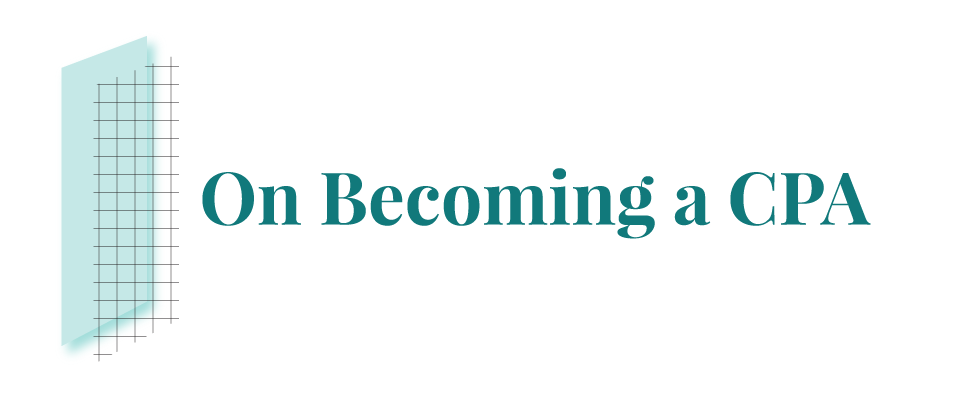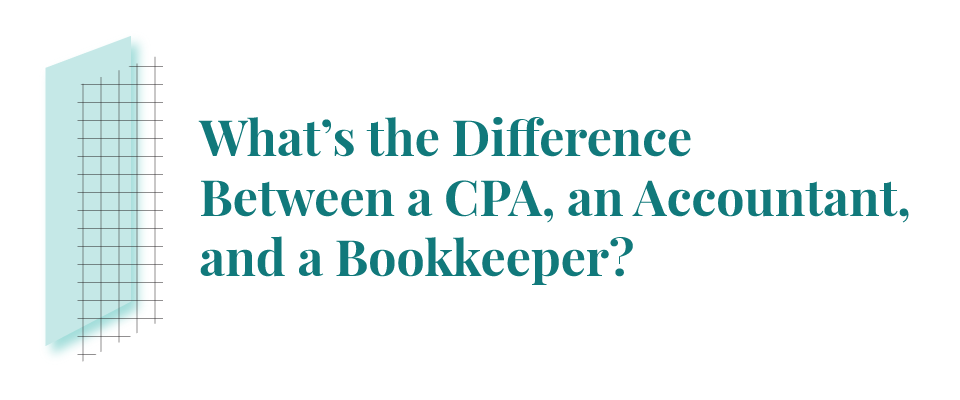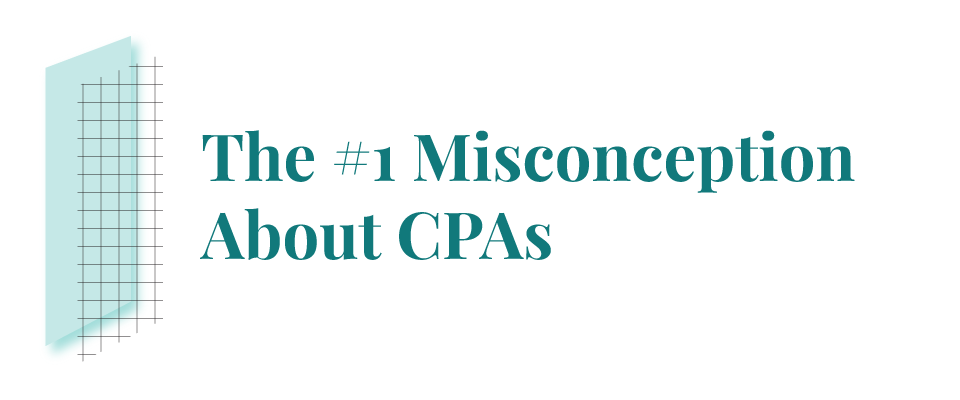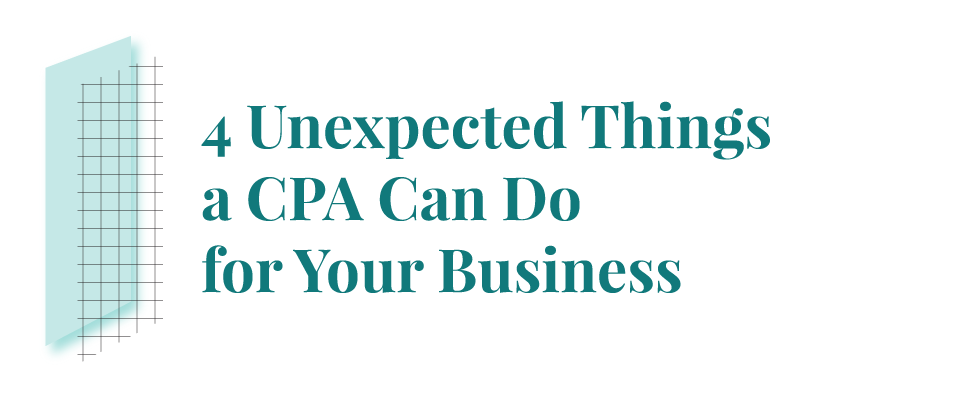This article is sponsored by the American Institute of CPAs (AICPA). Use their Find-A-CPA map to find the best Certified Public Accountant for you and your small business.
CPAs, they’re not just for bookkeeping.
But, seriously, Certified Public Accountants are a completely underrated resource. Think about it. Whether you’re operating a small business, an entrepreneurial project, or a Fortune 500 enterprise company, who knows more about numbers and money than a CPA?
Answer: probably nobody.
In fact, CPAs are an untapped resource when it comes to advisement, hiring conundrums, risk management, pivot considerations or really any major milestone movement a business needs to make—your CPA is going to be your best ally.
We aren’t financial experts here at Career Contessa, but the
American Institute of CPAs (AICPA) hooked us up with Kelley Long, a CPA with twenty years of experience. In this article, Long explains how she “fell into” being a CPA, the nuanced differences between financial professionals, and the unexpected ways that CPAs can propel any business forward.
On Becoming a CPA
Kelley Long chose accounting as her undergraduate career. Why? Because, like becoming a doctor or a lawyer, this degree offered endless opportunities—all without having to attend years and years of graduate school and its accompanying debt. You might argue that Long was a natural accountant from the beginning, as this was an incredibly financially-sound decision for a 19-year-old to make.
Like many undergraduate students, Long was unsure as to whether or not she would actually use her degree. However, upon graduating, she quickly pursued her CPA license—and, career-wise, doors opened accordingly.
In her 20-year career so far, Long has worked as a tax accountant, marketing director, a financial planner, and now a financial wellness coach. Long credits her career to her CPA licensure—pinpointing that its presence quickly built trust from prospective employer or clients.
“Having my CPA not only quickly builds trust when talking with people about something as personal and sometimes shameful (for them) as money, but the knowledge I have from maintaining my license through the years of required continuing education make me a go-to person in my company and for clients with questions about taxes.”
What’s the Difference Between a CPA, An Accountant, and a Bookkeeper?
If you're using these terms interchangeably, we're here to clear the air. What gives an accountant a CPA designation? Are all accountants CPAs? Are all CPAs accountants? What about bookkeepers?
Let's dive into what each accounting professional does—and the certification they need to do so.
What Is a Bookkeeper?
A bookkeeper records the transactions of a business or an individual. Bookkeepers’ value lies in the fact that they make it easier to enact financial projections, track budgets, and prepare taxes. Bookkeepers save hours and hours of a business owner’s or individual’s time by painstakingly tracking all finances for them.
Generally speaking, the primary function of a bookkeeper is data entry. A bookkeeping position usually requires computer skills, financial software skills, and a knack for numbers. A bookkeeper can generally practice without licensure. Depending on her skillset, a bookkeeper might also be able to help with things like sales tax and payroll tax filings.
What Is an Accountant?
An accountant is about “one level up” from a bookkeeper. Typically, accountants have at least an associate’s degree or an undergraduate degree in accounting. As such, accountants have a more in-depth knowledge of the rules of accounting for businesses.
Accountants are responsible for a variety of financial elements within a business—including the management of business financial statements, tracking and analyzing a business’s income and expenses, managing assets and liabilities in order to enact financial projections, budgets, and (of course) tax preparation.
Accountants know how to categorize transactions for a business or an individual—including more complicated financial situations like capital assets that need to be depreciated. According to Long, “that’s accountant speak for something like a laptop you buy to use over the years in your business—you don’t expense the full purchase the year you bought it, but instead you spread out the expense over the useful years of the laptop’s life.”
Accountants know how to present a business’s finances best to both investors, potential investors, and the super-intimidating IRS.
Important Distinction: An accountant may work as a bookkeeper, but not vice-versa. When someone uses the label “accountant,” it’s usually because they do not have CPA licensure, but they’re definitely more than just a bookkeeper.
What Is a CPA?
A CPA is a Certified Public Accountant who has met all the requirements for licensure. This includes passing the
Uniform CPA Examination®, which is a rigorous assessment of the accounting knowledge and skills that are directly connected to the work of a newly licensed CPA. It also includes meeting the eligibility requirements for education, experience and ethics, which vary by
state jurisdiction.
In addition to that, CPAs must complete 120 hours of continued education every three years. So, basically, when you hire a CPA, you are hiring an accountant that is up-to-date on all things financial—and financially legal. In fact, many people say that the CPA Exam is more difficult than the Bar Exam.
Through this career of continued learning, CPAs hold themselves accountable to the highest standards of independence, ethics, and integrity. In fact, all public companies are required to be audited, every year, by a CPA.
In summary, CPAs are going to be the most qualified to understand all financial aspects of basically any business.
The #1 Misconception About CPAs
As we spoke more and more with Kelley Long, we learned so much about CPAs. For one thing, we had no idea how rigorous the Exam was—and we are huge fans of the
continued learning CPAs do throughout their careers. Just imagine if every position required that type of cyclical learning!
One of the most common misconceptions about CPAs is that they are all tax preparers. Of course, when you’re dealing with complicated tax issues, you are going to want to enlist the help of someone who knows everything about tax law, but that’s not all a CPA does—far from it!
4 Unexpected Things a CPA Can Do for Your Business (A Must-Read)
Hey there, bid decision-makers, we have a seriously untapped resource that might be the key to taking your business to the next level with their expertise—all while staying within compliance.
When most people consider hiring a CPA, they’re looking at things like tracking expenses, taking care of tax returns, managing payroll, and the general management of financial records
The reality is that a CPA can do so much more. Here are just a few of them.
Pricing Products
Did you know that your CPA can help you price your products? With a little market research, a grasp on your current financial status, and some forecasting, your CPA can help you put a price tag on your product.
Rather than selecting arbitrary prices, enacting random sales, and enduring off-seasons, enlist your CPA’s help in pricing your products and services.
Hiring (and Firing)
Not sure if it’s the right time to hire? Talk to your CPA. She can help you to decide if your business is in a good enough place to hire a new employee—and the salaries you can afford to pay.
Conversely, if numbers aren’t quite “adding up” your CPA could potentially help you to figure out if an employee is stealing from the business—or if they simply aren’t pulling their weight.
Determining Business Value
There is any number of reasons you might want to know the overall value of your business—hey, curiosity is one reason!
If you’re looking to sell your business, fielding acquisition interest, or (gulp) going through a divorce, a CPA can help you to determine the worth of your entire business.
Helping You Retire
Hey, you might not want to work forever—and maybe your CPA has her eyes on eventual retirement, too. If you’re working with a CPA who also holds the Personal Financial Specialist (PFS) credential, they are experts in all aspects of
financial planning and can help you with your own personal finances.
In this case, your specific CPA/PFS, also known as a CPA financial planner, can help with your business while setting you (personally) up for saving and investing for retirement.
Other CPA Specialties to Consider:
- Estate planning
- Consulting Services
- Auditing+ assurance services
- Attestation services
- Forensic accounting
- Fraud prevention
- Filing with Securities and Exchange Commission (SEC)
In Conclusion: CPAs Are Your Business’s Best Friend (and Your Best Employee)
Many companies track things like cash in and cash out. But a CPA takes it to the next level.
CPAs are armed with the knowledge and foresight to forecast, spot potential issues, and encourage risk-taking where there is a viable opportunity. CPAs, with their vast expanse of knowledge, can set an individual or a company up for continuous cycles of success.
Rather than slogging through slow seasons, enlist the help of a CPA to safeguard you against ever suffering one.
In conclusion, we wanted to leave you with this expert advice from our new favorite CPA, Kelley Long,
“CPAs understand the financial side of how businesses work, so if you have a great business idea but no idea how to do the financial side, a CPA can be the most valuable relationship you’ll develop in order to get that business off the ground.”
This article is sponsored by the American Institute of CPAs (AICPA). Use their Find-A-CPA map to find the best Certified Public Accountant for you and your small business.















